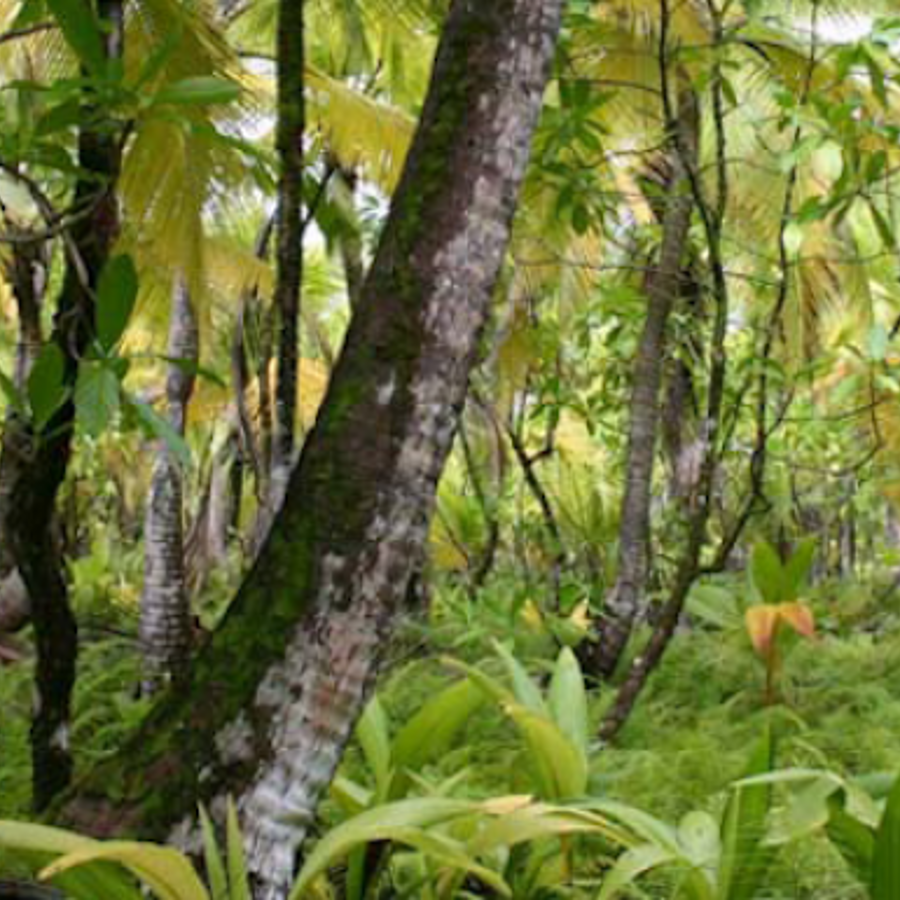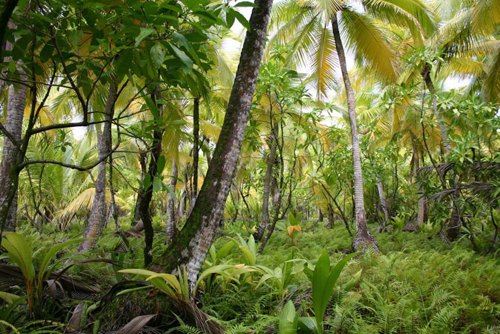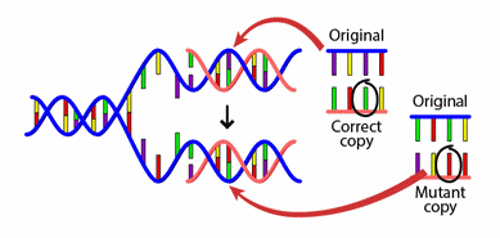
How come plants can make essential amino acids but people can’t?
February 8, 2011

A curious adult from California asks:
"How come plants can make essential amino acids but people and animals can't? After all, both need the same amino acids to survive."
That's a great question! When you think about it, it does seem weird that most animals don't make a lot of the amino acids they need to survive. But it isn't.
Animals get these amino acids by eating plants or animals that eat plants. This works because plants can make all twenty amino acids including the ten or so "essential" ones that most animals can't.1.2 Another good reason to eat your veggies!
Animals evolved to work this way because it saves energy. Any of our distant ancestors that lost the ability to make these amino acids had extra energy for other things.2 And apparently that extra energy helped them thrive. In fact, they did so well that eventually only their offspring survived.
And we all come from these survivors. The end result is that animals (including us) have lost the ability to make many of their amino acids.3
What I want to do for the rest of the answer is talk about how species can lose the ability to do things over time. And to do this, I need to take a step back and talk about genes, mutations, and something called pseudogenes.

Change can be Good
Genes are chunks of DNA that tell our cells what to make, like recipes in a cookbook. But DNA can change and sometimes this will change the recipe. Which will change what gets made.
This is like when a family recipe gets passed on. Sometimes someone in the family tweaks a recipe to improve it. The next generation then gets this improved recipe.
Changes in your DNA are called mutations instead of tweaks. Mutations in a gene can either be good, bad, or have no effect.
Kind of like our family recipe. If someone rewrites it in cursive or changes the measurements to metric, then the changes don't have any effect. But if they change how the dish is cooked, then it might be good or bad.
For our genes, good mutations might let us save energy by "turning off genes" and stopping us from making something (like amino acids). They might also help us do things better like being able to drink milk as an adult.4 These might be like changing up a cake recipe so the cake cooks for a shorter time to make it moister.
Bad mutations might be those that can cause us problems, like alcohol intolerance or even genetic disorders like Huntington’s disease.5,6 This might be like cooking the cake for such a short time you end up with a goopy mess.
Mutations that are very good are more likely to get passed on to the next generations. Just like the improved family recipe.

When a gene gets shut off because of a mutation, it is like someone misplacing the family recipe. It is still there, we just can't find it so we don't use it.
The DNA that makes up the broken gene stays around...even after millions of years! And as you'll see below, sometimes our cells can find that lost recipe and fix it so they can use it again.
Scientists call this a pseudogene and they find pseudogenes by matching up similar chunks of DNA between different species. Scientists have found pseudogenes in animals that are almost certainly parts of the old machinery for making the essential amino acids.7 So we had working versions of these genes at one time, but now they are broken.
Before getting into more detail about pseudogenes, I think it is worth thinking more about how losing a gene might be useful. It helps me to think about the process if I think about those genes as various car parts.
Less is More
A Model T is definitely different from a Focus, a Prius or a Leaf. Along the way, parts were changed, added, and even lost.
For example, the parts that are involved in fuel processing have DEFINITELY changed since the invention of the first gasoline powered car. Many rounds of improvements were needed in the gasoline processing to increase those MPGs!
Eventually hybrids were invented and I think we can all agree that was a step forward when it comes to fuel efficiency. However these cars still use gasoline, so the traditional parts used in fuel processing are still there, but not used as much.
Now companies are making electric cars. They don't need the car parts that deal with gasoline. So those parts are tossed out of the design.
Genes like the ones that make essential amino acids are like the fuel processing parts in electric cars and were eventually shut off/"lost" when they weren't needed. Electric cars don't need parts dealing with gasoline just like you don't need genes dealing with essential amino acids. We both now get our energy from different sources!
Now that we've got a good handle on losing genes, we're ready to dive back into the topic of pseudogenes. Ideally at this point I would now talk about those amino acid making genes we animals all lost millions of years ago.
The problem is that scientists, for whatever reason, haven't yet done a lot of work on these. What I'll do instead, is talk about a pseudogene involved in making vitamin C. And how it got turned back on in some birds.

We Didn't Always Need Oranges
You've heard of vitamin C right? Most plants and animals can make vitamin C out of sugar but humans, and our closely related primates (monkeys and apes), can't.8
Making vitamin C from sugar takes lots of genes that all have to work one right after the other. Primates have a mutation in a gene called GULO (short for L-gulonolactone oxidase) that wrecks the recipe. This gene, the last step for making vitamin C, is now a pseudogene in humans.9
The GULO story is even more interesting in birds. Some birds have a working GULO while others don't...nothing crazy there. But it looks like some bird species that lost the ability to make vitamin C actually regained it millions of years later.9 They found that old family recipe that had been lost.
Their damaged recipe was repaired so they could now make their own vitamin C again. A good reason to keep these relics around in our DNA!
Pseudogenes are related to more than amino acids or vitamins. Humans alone have lost genes involved in smell, taste and immunity. In fact, there have been thousands of human pseudogenes identified over the last few years, and probably still more we haven’t discovered!
Read More:
- PLoS Biology: Where do new genes come from?
- Scientific American: Slightly technical but interesting information about pseudogenes

Author: Dr. Jan DeNofrio
When this answer was published in 2011, Jan was a Ph.D. candidate in the Department of Genetics, studying mechanisms involved in coral bleaching in John Pringle’s laboratory. She wrote this answer while participating in the Stanford at The Tech program.
 Skip Navigation
Skip Navigation
